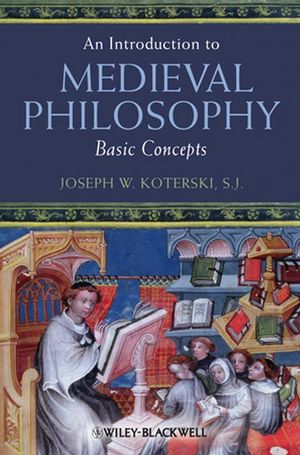An Introduction to Medieval Philosophy: Basic ConceptsISBN: 978-1-4051-0677-1
Hardcover
256 pages
October 2008, Wiley-Blackwell
 |
||||||
"Another strength of the book is Koterski's skillful way of
motivating philosophical interest in concepts and ideas that might
otherwise seem arcane to the beginner . . .Koterski gives a thought
provoking analysis of several basic concepts that permeate medieval
thought and provides a thorough account of the varied sources that
influenced reasoning about these concepts." (American Catholic
Philosophical Quarterly, 1 October 2010)
"Strikingly clear, succinct, and erudite, this book will be treasured by beginners and established scholars alike. As the relationship of religious faith and the human sciences becomes an ever more pressing societal issue, contemporary philosophers will greatly benefit from Koterski's masterful exposition of the insights of medieval thinkers."
–Matthew Levering, Ave Maria University
“Lively, accessible, and well argued, this is a fine introduction that deserves a wide audience. Summing Up: Recommended.” (Choice Reviews, May 2009)
“Fr. Joseph Koterski, a philosophy teacher at Fordham University and editor in chief of International Philosophical Quarterly, has penned a lovely little introduction to the basic themes of medieval philosophy.” (First Things, January 2009)
"Strikingly clear, succinct, and erudite, this book will be treasured by beginners and established scholars alike. As the relationship of religious faith and the human sciences becomes an ever more pressing societal issue, contemporary philosophers will greatly benefit from Koterski's masterful exposition of the insights of medieval thinkers."
–Matthew Levering, Ave Maria University
"Father Koterski is a master of Jesuit pedagogy. His chapters
introduce key themes that still dominate Western philosophy. No
serious student of philosophy or theology should miss reading this
book."
–Romanus Cessario, O.P., St John’s Seminary,
Boston, Massachusetts



